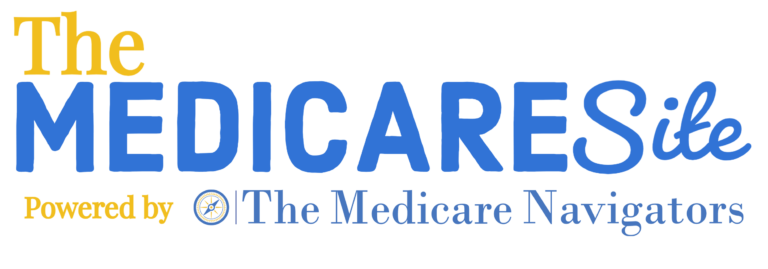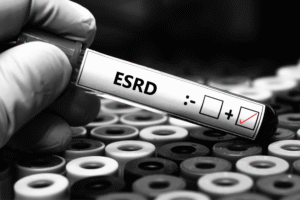If you already receive healthcare through Indian Health Services, you may be wondering what happens when you become eligible for Medicare. Does it affect your Indian Health Services access or costs? Below, we breakdown if you need to join Medicare, how it works with Indian Health Services, and how you and your Tribe may benefit from coverage.
Is Indian Health Services (IHS) health insurance?
IHS is not health insurance, but rather it provides healthcare services to federally recognized American Indians and Alaska Natives. Acting as a healthcare provider and advocate, it provides an array of direct medical services. These services include inpatient, outpatient, ambulatory, emergency, and preventative care. Care is offered through IHS care facilities, and some Purchased/Referred Care (PRC) facilities.
Since it is not health insurance, it is not considered creditable coverage by Medicare for Part B.
Can I have IHS and Medicare?
Yes, you can have both IHS and Medicare. Medicare does not prevent you from qualifying or using Indian Health Services. You can still go to your IHS facility to receive your normal services.
How does Medicare work with IHS and what is the benefit?
Having Medicare along with IHS can benefit you as well as your Tribe’s IHS. If you have Medicare and IHS, you can visit your IHS facility or any other provider outside of IHS that takes Medicare. Since IHS may not provide all the care or providers you need, Medicare can help you expand your care options.
Your care at IHS facilities will continue to be free whether you have Medicare or not. Also, IHS facilities will accept Original Medicare if you get your care there. This is beneficial for your Tribe because IHS can then bill Medicare for your services. This saves funds that can be allocated for other Indian Health Services.
Is there a Medicare Exemption for Native Americans?
No, there is not a Medicare exemption for Native Americans. If you don’t enroll in Medicare Part B when you are first eligible, you will not be exempt from late penalties. This is because IHS is not insurance, and Medicare does not consider it creditable coverage for delaying Medicare Part B. You will become eligible for Medicare when you turn 65. You may also qualify for Medicare under 65 if you have been disabled for 24 months or have End-Stage Renal Disease (ESRD).
How Much Does Medicare Cost for Native Americans?
Ultimately, your income will determine what you pay for Medicare. Part A is premium-free if you have 10 years of work history, but Part B does has a monthly premium. Many individuals who qualify for IHS also qualify for the Medicare Savings Program to help pay their Part B premium. You can see the current year Part B premiums here.
Some tribes have Medicare Tribal Sponsorship, where the tribe will pay Medicare premiums on behalf of Tribal Members. You should contact your Tribe to learn if they do these sponsorships.
What does Medicare Cover?
Original Medicare covers inpatient hospital services, skilled nursing facilities, hospice, outpatient medical providers and services, and durable medical equipment. It does not cover prescriptions. Some Medicare Advantage plans include extra benefits such as comprehensive dental, vision, hearing aids, fitness membership, and over-the-counter spending allowance.
How do Medicare Advantage plans work with IHS?
Medicare Advantage plans combine all of your Medicare coverage into one plan. Most Medicare Advantage plans include Part D prescription drug coverage, as well as other extra benefits that Medicare doesn’t cover. These extra benefits can include dental coverage, hearing aids, fitness memberships, and over-the-counter allowance. If you are enrolled in a Medicare Advantage plan, you can continue to seek care at any of your Indian Health Services facilities. If the facility is in the Medicare Advantage care network, then IHS can bill them for services. If it is out of network, you can still use IHS. Your cost at an IHS facility will be the same with or without a Medicare Advantage plan.
How does IHS work with Part D prescription drug plans?
Part D prescription drug plans help pay for your medications. These are offered as either a Medicare Advantage plan or a stand-alone plan. Even if you enroll in a Part D plan, you can still fill prescriptions through IHS pharmacies. You still have no copays for prescriptions at an IHS facility for Medicare covered prescriptions.
Benefit of enrolling in a Part D plan
Having a Part D plan means your IHS pharmacy can bill your Part D plan directly. These funds can go back to the facility to help fund other IHS services. It also gives you more options to fill your prescriptions outside of IHS providers. This is beneficial if you are traveling or are away from an IHS facility. However, your plan’s normal copays apply if you fill prescriptions outside an IHS facility.
In summary, Indian Health Services (IHS) and Medicare can work together to expand your healthcare access and support your community. While IHS provides essential care, enrolling in Medicare—especially Part A, Part B, and Part D—ensures you have broader coverage and flexibility when accessing providers outside of IHS facilities. It also allows IHS to bill Medicare, bringing valuable funds back into Tribal healthcare systems. By understanding how Medicare complements IHS, you can make informed choices that benefit both your health and your Tribe.






